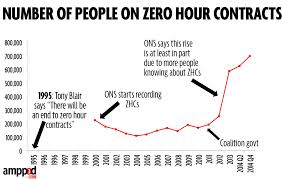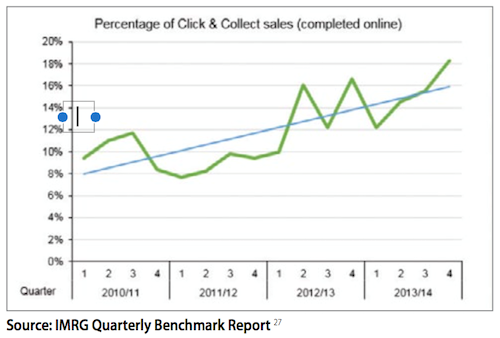Work TV
Watch our TV Channel dedicated to the ‘World of Work’. Explore our video library for informative videos featuring career opportunities at leading companies, franchising opportunities, further education and recruitment professions and their services.
Simon Collyer
ABC News Release
Some further good news - this time from Scotland. The ABC is going to be broadcasting LIVE sessions from the Scottish Parliament featuring; committee meetings and news relating to pensions and benefit claimants. This will of course include employment news and news on the economy.
The live TV service is launching in the next couple of weeks. We are continuing broadcasting relevant committee meetings via UK Parliamentary TV, a service that we recently added.
We hope this will give people a better understanding of the Scottish Parliament at work, with particular focus on the Scottish Parliament Welfare Reform Committee. We most graciously thank Douglas Carter and the Scottish Parliamentary TV team for the opportunity.
This is a sample video of a recent debate:
First Minister's Questions - Scottish Parliament: 12th November 2015
Real Earnings Growth Returns
The Resolution Foundation has pointed out - real earnings growth has finally returned, but far stronger pay rises will be needed to beat inflation and sustain the pay recovery next year, the Resolution Foundation said today (Wednesday) in response to the ONS Annual Survey of Hours and Earnings.
The 1.5 per cent real earnings growth recorded this year means pay has recovered 13 per cent of the ground lost during the recent pay squeeze. But typical earnings remain 8.9 per cent below their 2009 peak and, on current trends, it will take another six years for typical earnings to return to that level – meaning over a decade of lost pay growth.
Pay growth has been strongest among the lowest ten per cent of earners (3.4 per cent), and weakest (0.5 per cent) among the highest earners. Pay has also recovered more strongly in lower paying roles, such as elementary occupations and among sales & customer services.
The Foundation adds that Northern Ireland and the West Midlands enjoyed strong rebounds in pay, but real hourly pay is still falling in London, East Midlands and Wales.
Bruntwood Prize Winner Reflects The Times We Live In
Wish List by Katherine Soper, who currently works in a perfumery on Regent Street in London, was today – 17 November 2015 – announced as the winner of the 10th anniversary Bruntwood Prize for Playwriting 2015 – Europe’s biggest playwriting prize. She wins a prize of £16,000, and a residency at the Royal Exchange Theatre, Manchester, where today’s award ceremony took place and the process towards production begins.
Wish List is Katherine Soper’s first play. She said: “This is the best boost of writerly confidence I could imagine.”
From the Guardian
Wish List is the story of a teenage carer, Tamsin, who takes work in a warehouse on a zero-hours contract to help support her younger brother, Dean, when his employment and support allowance (ESA) is cut. (“He has been found fit to work when he clearly isn’t,” Soper states.)
“At its heart it’s about the attitude we have to work, as a country; the attitude we have towards the unemployed and the attitude we have towards the rights of those who are in work,” says Soper. She spent summers doing warehouse work in between studying English literature at Cambridge University and became interested in their “power structures”.
“A huge company will hire this warehouse, who then hire a temping agency, who then hire me … You start to see everyone taking their cut, and the person doing the labour at the bottom.” The title of the play is designed to evoke Amazon wish-lists. “It’s a very wistful play. It’s about possibilities that could have presented themselves … It’s about the wishes that we might have for other ways our life might go.”
Welsh Foodbank Rise
Recent Welsh figures have showed that between April and September 2015 the number of people in who were supplied three days' emergency food by foodbanks stood at 39,245, up from the same time last year. The figures have been described as a reflection of the continued failure of austerity economics. The planned changes to working tax credits that could plunge more people further into poverty.
Plaid Cymru - Ban Zero Hour Contracts
All eyes will be on the Labour party this week as Plaid Cymru acts once again to ban the use of zero hour contracts in Wales. The Party of Wales has tabled amendments to the Regulation and Inspection of Social Care Bill in a bid to outlaw the use of zero hour contacts in the social care sector.
This is the fifth time that Plaid Cymru has tried to outlaw the use of exploitative contracts in Wales. However, despite claiming that it is against zero hour contracts and despite the election of a leader that pledged to ban zero hour contracts, Labour has voted against Plaid Cymru’s proposals to ban them every single time.
Plaid Cymru’s Jocelyn Davies explained that zero hour contracts are exploitative and disproportionately affect women. They are used heavily in the social care sector and cause uncertainty, job insecurity and personal stress.
Plaid Cymru’s Jocelyn Davies said:
“Plaid Cymru is completely opposed to the exploitative use of zero hour contracts and we have acted on several occasions to outlaw their use. However despite claiming that they are against the use of zero hour contracts, the Labour government in Wales has failed to support Plaid Cymru on four occasions to ban the use of these exploitative contracts in various sectors.
“Today we have a new opportunity to ban them after Plaid Cymru tabled amendments to stop the use of zero hour contracts in the social care sector. The question is will Labour support our efforts, or will it vote with the Tories once again?

“The Labour First Minister has previously tried to divert attention away from his party’s unwillingness to act by diverting attention to phantom legal pitfalls, but the Presiding Officer herself has confirmed that the government could ban zero hour contracts in certain sectors.
“Zero hour contracts are often exploitative. They are unpredictable and workers have no guarantee of their income from week to week, no protection from unfair dismissal, no maternity rights or redundancy rights, and no sick pay or pensions.
“It is Plaid Cymru’s aspiration that exploitative zero hour contracts will be outlawed. I hope that we gain support from those who claim to share our vision this week and that they will support our amendments.”
Half of All Employers Expect To Be Affected By the New National Living Wage
A report by the Resolution Foundation says:
Over half of all employers (54%) say the new National Living Wage (NLW) will have an effect on their wage bill, with three in ten of those organisations that will be affected by the new higher wage floor planning to raise productivity in response. This is according to a new survey published today by the Resolution Foundation (RF) and CIPD, the professional body for HR and people development, and the
The survey of 1,037 employers, which launches a joint CIPD/RF investigation into how firms in low-paying sectors will adapt to the National Living Wage, shows that the higher wage floor will have its greatest impact in retail (79%) and hospitality (77%), where over three-quarters of employers say their wage bill will be affected. In addition, more than two thirds of employers in the healthcare sector (68%) will be affected.
Overall, almost one in five employers (18%) say they will be affected to a large extent by the NLW, a figure that rises to around a third in retail (33%) and hospitality (32%).
Asked for the three most important things they plan to do in response to the NLW, employers are most likely to say they intend to manage these higher costs by improving efficiency / productivity, with almost a third (30%) of employers intending to do this.
Taking lower profits / absorbing costs is the next most popular response (22%), followed by reducing overtime and bonuses (16%), raising prices (15%) and reducing the number of employees through redundancies or slower recruitment (15%).
Fewer than one in ten employers say they will reduce the basic pay growth rate for the rest of the workforce (9%), reduce hours (9%), hire more workers under 25 (8%), hire more apprentices (8%) or cancel/scale down plans for investing in or expanding the business (7%).
The CIPD and the RF note that the responses differ by type of employer. For example, smaller employers (1-249 staff) are significantly more likely to say that they will respond by raising prices (25%) than larger employers (250+ staff) of whom just 10% say they will respond in this way.
A higher proportion of public sector employers (21%) say they plan to cut the size of their workforce as a result of the introduction of the National Living Wage than private sector employers (13%).
The CIPD and RF welcome the fact that so many employers plan to raise productivity in response to the new higher wage floor. However, they warn that securing these gains may be challenging for many firms.
The survey also finds that of those firms who say they’ll be affect by the National Living Wage, 26% say that it will reduce pay differentials between those affected and their supervisors/managers.
However, with almost as many employers (20%) saying that they would maintain pay differentials, the NLW also looks set to have a positive ‘ripple effect’ for workers already earning above the new wage floor.
This finding supports recent RF research, which estimated that 2.8 million workers would directly get a pay rise as a result of the new National Living Wage by 2020, with a further 3.2 million workers receiving an indirect benefit as employers seek to maintain pay differentials between staff.
However, 46% of employers who expect to be affected by the National Living Wage do not yet know what impact it will have on pay differentials within their business, so there is still considerable uncertainty over what the effects will be.
Just over a quarter of employers (28%) think that cuts to corporation tax and national insurance will offset at least some of the extra wage costs, though only one in ten say the tax cuts will offset most or all of the increased costs. However, reflecting the fact that many employers have yet to fully assess the impact of the range of taxation changes, almost a third of employers (30%) were unable to give a response.
Conor D’Arcy, Policy Analyst at the Resolution Foundation, said: “The new National Living Wage will have a huge impact on the labour market when it comes into effect next April, with millions of workers set to get a pay rise and half of all employers saying they’ll be affected.
“It’s encouraging that so many firms say that they’ll respond to the new higher wage floor by improving efficiency. But actually delivering this will prove challenging in many sectors, and it’s important that firms are given the necessary support to boost productivity.”
Mark Beatson, Chief Economist at the CIPD, said: “The National Living Wage was a bombshell for most employers when it was announced in July. It comes into force next April, which does not give employers a lot of time to prepare. Hence we found 26% of employers in September saying it was still too soon to say how they would manage the cost implications.
“For those that have started to think about the consequences, the emphasis on efficiency rather than cost-cutting is welcome. However, our research also suggests that only a small proportion of firms see any substantial connection between the National Living Wage and other changes to taxes and National Insurance Contributions. If the Chancellor wants to provide any more support for businesses grappling with the National Living Wage in the Autumn Statement, it might be better delivered through enhanced business support or special help for the care sector rather than shaving small amounts off general business taxation.”

Poverty and Alienation Blamed for Radicalization
The blame game has kicked off, French national unity did not last long. Poverty and unemployment in Belgium and the role it played radicalizing young muslims involved in the Paris atrocities is getting much attention.
Inside — the Belgian radicals’ den: Hans von der Burchard and Laurens Cerulus spent Sunday in the now infamous Brussels suburb [Molenbeek] the Belgian justice minister says he doesn’t have a grip on — and a terrorist den barely a couple of kilometres from the city’s European quarter. “Many houses are run-down. Poverty is rampant. Molenbeek has the highest unemployment rate of any region in Belgium, at 30 percent.” The consequences? “In this environment, where young Muslim have little to be optimistic about, radical messages offer strength and heroism,” said Magnus Ranstorp, a terrorism expert at the EU Radicalization Awareness Network.
EU Radicalization Awareness Network - General contact details: This email address is being protected from spambots. You need JavaScript enabled to view it.">This email address is being protected from spambots. You need JavaScript enabled to view it. 0031 20 463 5050

General comments from Brussels
“Just look at unemployment figures, school drop-out rate and lack of social housing… ”
“We are scared to engage with people different from us and they feel rejected in their identities and so it goes on and we tumble into a war no-one can win.”
“Brussels has a problem of unemployment, poor housing, alienation and radicalization, and it needs sorting out. Abolishing the communes and having one city government and one city police force would help.”

Rasha Elass writes for Reuters,
“Until perhaps Friday, the main perception among Western intelligence agencies and Washington policymakers has been that Islamic State poses ‘no immediate threat’ to the United States or the West… Some countries, as naive and misguided as they have been, privately sighed relief to see their own Islamist nationals travel to Islamist territory to meet their fate.”
“‘It’s better than having them stay in our country,’ one Western diplomat told me … ‘statistically, a newly arrived jihadist to ISIS territory is killed within weeks, so good riddance.’”

Paris Attacks Could Slow The Economy
The Paris attacks are bad news for the economic recovery in the Eurozone – the attacks could slow the pace of world economic recovery, and in particular, slow the economy of France as the government focuses on other issues.
At least 129 people were killed on Friday evening in a series of coordinated attacks on Paris with Islamist militants claiming responsibility for the carnage.
Oil and commodity prices have dropped further in an already bearish market. Concerns are that these attacks will discourage people moving around.
"People in France are in shock. They are not doing much shopping and that could last for a few days," said Olivier Jakob from Petromatrix consultancy. Hardly surprising - shopping is not likely to be the first priority when you consider the circumstances and security and safety concerns.
A lot depends on how governments react and what restrictions are put in place that stop, slow or discourage people travelling.
Video Courtesy of Reuters
Asda - Click & Collect
Asda this week announced that it would be introducing a new click and collect service, called ToYou.
With 614 stores around the UK, Asda’s ToYou service offers an interesting option. The difference with this collect in store service is that it will allow customers to collect orders from other retailers in its stores. For those on low incomes it offers a chance for shoppers not to have to travel as much yet still have a wider choice of products to purchase.
Click and collect has really been growing in recent years.
Asda are not the first company to offer a service however, eBay items for example, can be collected from Argos.
With Christmas approaching this could be a useful service.

























